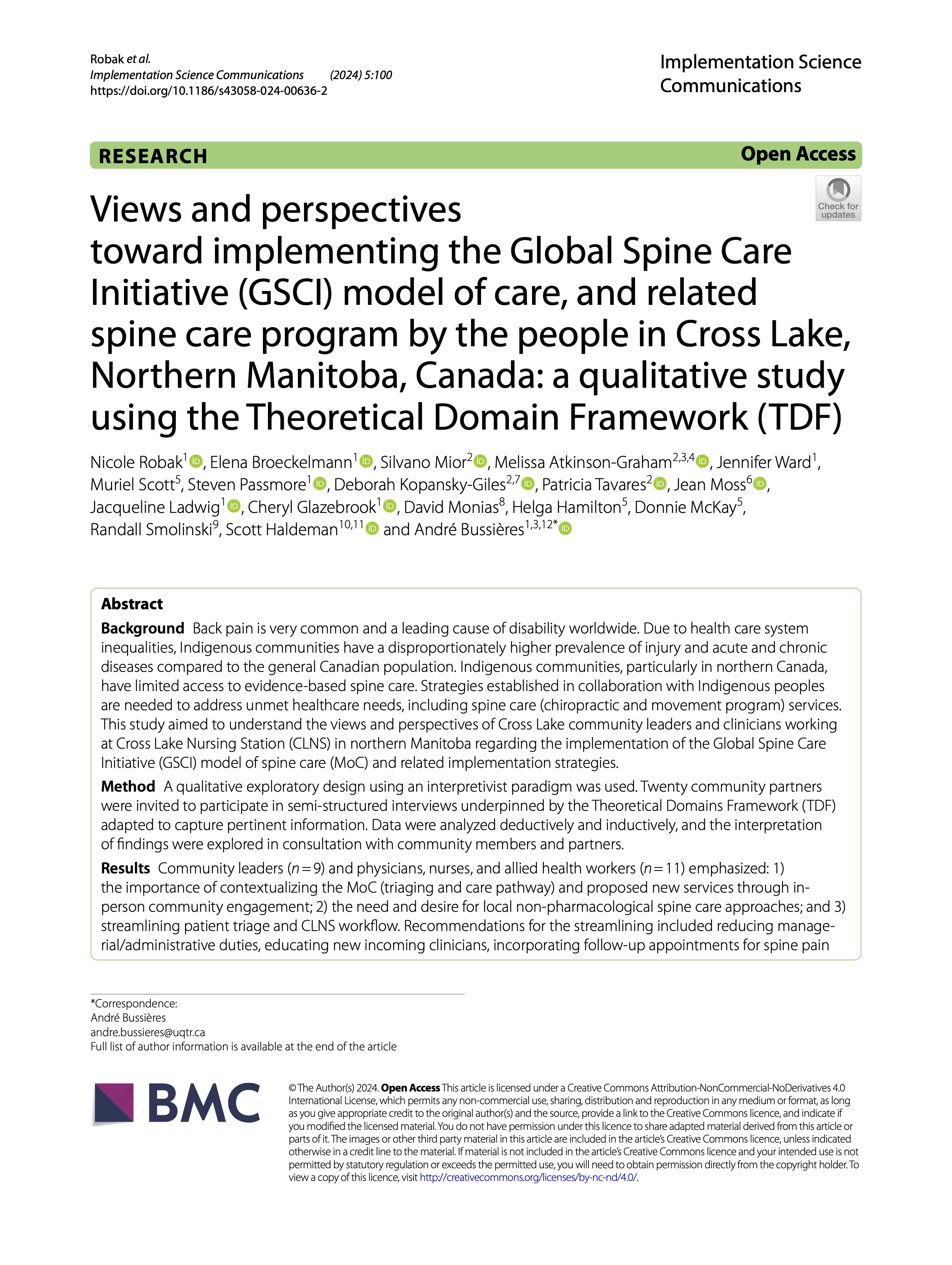New Global Spine Care Initiative Report Highlights Importance of Collaboration in Indigenous Communities
CROSS LAKE, MANITOBA, CANADA
A newly published paper led by University of Manitoba PhD students Nicole Robak and Elena Broeckelmann and the World Spine Care Canada (WSCC) research team shed light on the crucial role of community collaboration in providing spine care to Indigenous communities. The paper, titled "Views and perspectives toward implementing the Global Spine Care Initiative (GSCI) model of care, and related spine care program by the people in Cross Lake, Northern Manitoba, Canada: a qualitative study using the Theoretical Domain Framework (TDF)" emphasizes the need for a culturally sensitive approach when addressing the unique healthcare needs of Indigenous populations.
“Partnering with community members and leaders right from the start is crucial to implementing healthcare services that are culturally adapted and meet the community’s specific needs.”
The paper, published in the journal Implementation Science Communications, outlines some key factors for successfully implementing a spine care clinic in Cross Lake, Manitoba, a remote Indigenous community in Canada. The Global Spine Care Initiative (GSCI) spine care program was adopted in collaboration with community leaders and healthcare providers.
Prof. André Bussières, principal investigator for the Global Spine Care Initiative and senior author of the paper, stated, "Our research has shown that a one-size-fits-all approach to spine care is not desirable in Indigenous communities. It is crucial to involve community members and leaders in developing and implementing healthcare services to ensure they are culturally adapted and meet the community's specific needs."
The present study offers several important contributions:
Access to spine care remains limited in remote Indigenous communities.
There is a growing demand for a holistic approach to understanding spine symptoms and culturally safe treatment options.
The need for non-pharmacological multimodal care for spine conditions has not been sufficiently met.
The paper also highlights the importance of addressing the underlying social determinants of health (the conditions in which people are born, grow, work, live, and age), which can significantly impact the health and well-being of Indigenous populations. The team hopes their findings will encourage other healthcare providers and organizations to adopt a community-based and culturally sensitive approach when providing spine care to Indigenous communities.
The Global Spine Care Initiative is committed to improving spine health for all, and this paper is a significant step toward achieving that goal. By highlighting the importance of community collaboration and culturally adapted care, the initiative hopes to promote better health outcomes and reduce health disparities in Indigenous communities worldwide.
Media Contact
André Bussières
GSCI, Principal Investigator
Andre.Bussieres@uqtr.ca
+1-819-699-9404
This press release originally appeared on EINPresswire.


